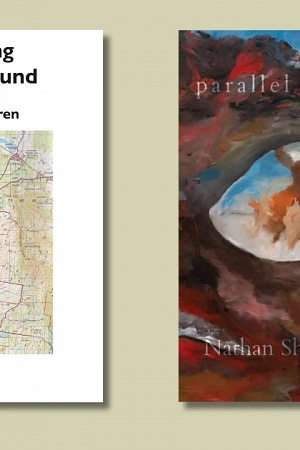The Poems of T.S. Eliot: Collected and uncollected poems, Volume 1
Faber, $95 hb, 1200 pp, 9780571238705
The Poems of T.S. Eliot: Practical Cats and further verses, Volume 2
Faber, $95 hb, 800 pp, 9780571238712
The Poems of T.S. Eliot edited by Christopher Ricks and Jim McCue & The Poems of T.S. Eliot edited by Christopher Ricks and Jim McCue
For fifty years after his death, the works of the most influential English-language poet of the twentieth century were unavailable in a scholarly edition. Moreover, Collected Poems, 1909–1962, arranged by T.S. Eliot himself and published in 1963, contained a number of widely recognised textual errors. The publication of The Poems of T.S. Eliot edited by Christopher Ricks and Jim McCue, brings this absurd situation to an end. The new edition is the most complete version of the Eliot corpus yet assembled: it begins with the 1963 Collected Poems; incorporates Old Possum's Book of Practical Cats (1939); folds in Ricks's edition of Eliot's juvenilia and ephemera, Inventions of the March Hare (1996); and adds scores of previously uncollected poems along the way. (Offering an exact number is difficult insofar as these additional poems range from poem sequences to two-line fragments; suffice it to say, the contents lists seventy-eight previously unpublished titles.) All of these are accompanied by an overawing editorial commentary and a textual history which, as a proportion of the material in this edition, dwarf the poems themselves. An edition like this is necessarily the servant of two masters: general readers and specialist scholars will come to it with differing needs and expectations. The Poems splits the difference by providing a more comprehensive textual history than ordinary readers will use, and a more didactic commentary than scholars will need.
Continue reading for only $10 per month. Subscribe and gain full access to Australian Book Review. Already a subscriber? Sign in. If you need assistance, feel free to contact us.













Leave a comment
If you are an ABR subscriber, you will need to sign in to post a comment.
If you have forgotten your sign in details, or if you receive an error message when trying to submit your comment, please email your comment (and the name of the article to which it relates) to ABR Comments. We will review your comment and, subject to approval, we will post it under your name.
Please note that all comments must be approved by ABR and comply with our Terms & Conditions.